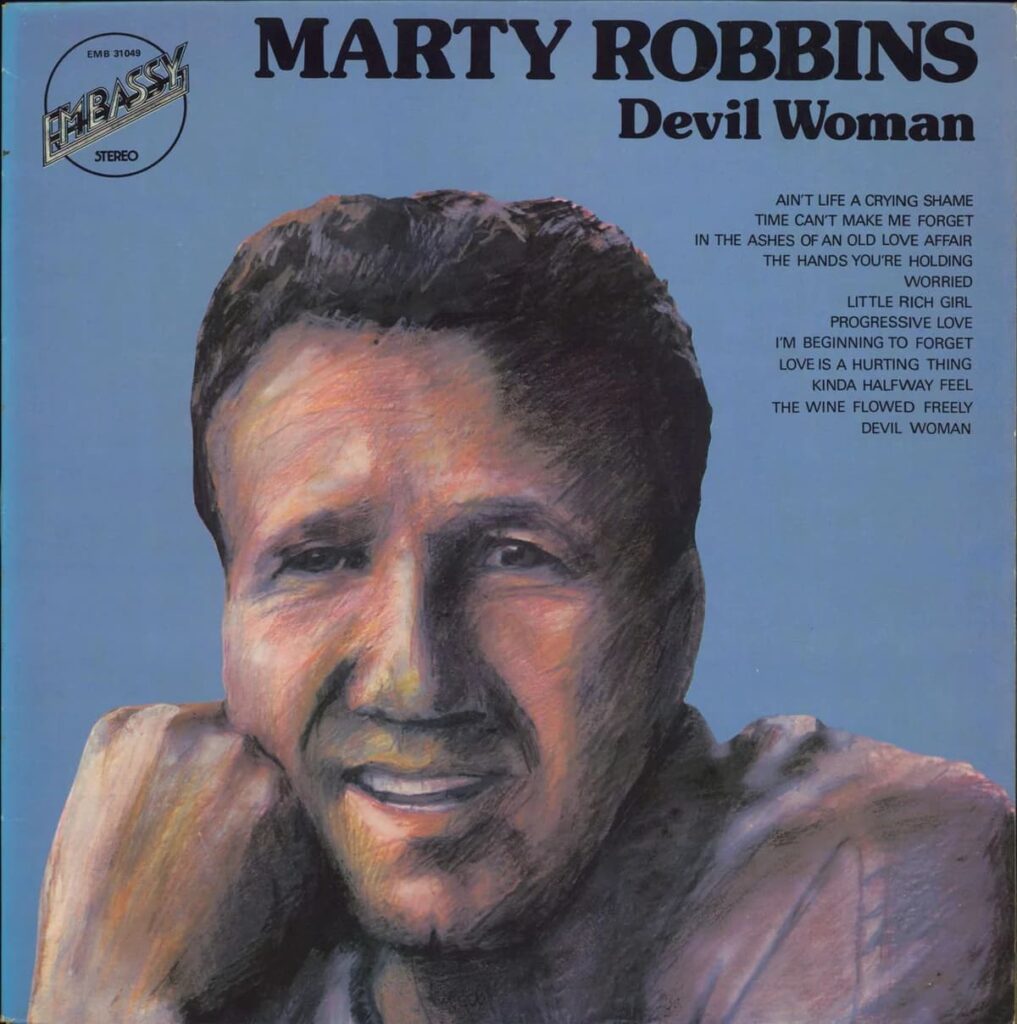
“The Hanging Tree”: A Tale of Love and Redemption in the Old West
There are songs that simply drift through the air, pleasant enough, and then there are songs that take root deep within you, weaving themselves into the fabric of your memories. Marty Robbins, a master storyteller with a voice that could conjure dusty trails and vast, silent plains, gifted us many such songs. Among them, the haunting and evocative “The Hanging Tree” stands as a powerful testament to love’s ability to redeem and transform, even in the shadow of despair.
Released in 1959, “The Hanging Tree” served as the title song for the popular Western film starring the legendary Gary Cooper. Its impact was immediate and widespread, demonstrating Marty Robbins‘ remarkable crossover appeal. The song found significant success on the charts, reaching number 15 on the US Hot C&W Sides chart and crossing over to the pop charts, where it peaked at number 38 on the Billboard Hot 100. This cinematic connection undoubtedly amplified its reach, but it was Robbins‘ poignant delivery and the song’s universal themes that truly etched it into the public consciousness. It also earned an Academy Award nomination for Best Song, a testament to its artistry.
The story behind “The Hanging Tree” is intrinsically tied to the film it introduces, though Robbins‘ rendition imbues it with a standalone power. Penned by Mack David and Jerry Livingston, the lyrics follow a lone prospector who arrives in a gold rush town, carrying a heavy burden of a past love and a deep-seated cynicism. He initially tries to “hang his dreams” of love on the titular tree – a chilling symbol of frontier justice and shattered hopes. The hanging tree itself is a stark, visual metaphor throughout the narrative, representing finality and the end of possibilities.
However, the song’s meaning evolves beautifully throughout its verses. It begins with the character’s attempt to abandon his dreams of love, believing them unattainable. As he finds gold, he also encounters a woman who loves him, but his heart, seemingly left on the “hanging tree” with his old memories, struggles to reciprocate. The narrative takes a dramatic turn when the protagonist faces the hanging tree himself, threatened by those who covet his gold. It’s at this moment, staring death in the face, that a profound shift occurs. His life is spared by the intervention of his “true love,” transforming the dreaded gallows into a “tree of life, new life for me. A tree of hope, new hope for me, A tree of love, new love for me.”
For many of us who grew up with Marty Robbins‘ voice as the soundtrack to our childhoods and young adult lives, “The Hanging Tree” carries a rich tapestry of memories. It conjures images of Saturday afternoons at the cinema, the smell of popcorn, and the grand, sweeping landscapes of the Western frontier. But beyond the cinematic allure, it speaks to something deeper within us – the enduring power of love to heal old wounds and offer second chances.
Marty Robbins had a singular gift for bringing these narratives to life. His smooth, yet incredibly expressive baritone, perfectly suited the solemnity and eventual triumph of “The Hanging Tree.” He didn’t just sing the words; he embodied the weary resignation, the flicker of hope, and the ultimate redemption. It was a performance that showcased his versatility, moving seamlessly from the rambunctious energy of some of his gunfighter ballads to the quiet contemplation of this profound love song.
This song, woven into the legendary album Gunfighter Ballads and Trail Songs, remains a potent reminder of an era when country and Western music painted vivid pictures with sound. It’s a song that invites quiet reflection, urging us to consider the dreams we might have “hung on the tree” in our own lives, and the unexpected ways in which hope and love can lead us back to them. It’s a testament to Marty Robbins‘ genius, reminding us that even in the bleakest of circumstances, there can always be a flicker of light, and a path toward a new beginning, walking away from the shadows of the past with the one true love by your side.